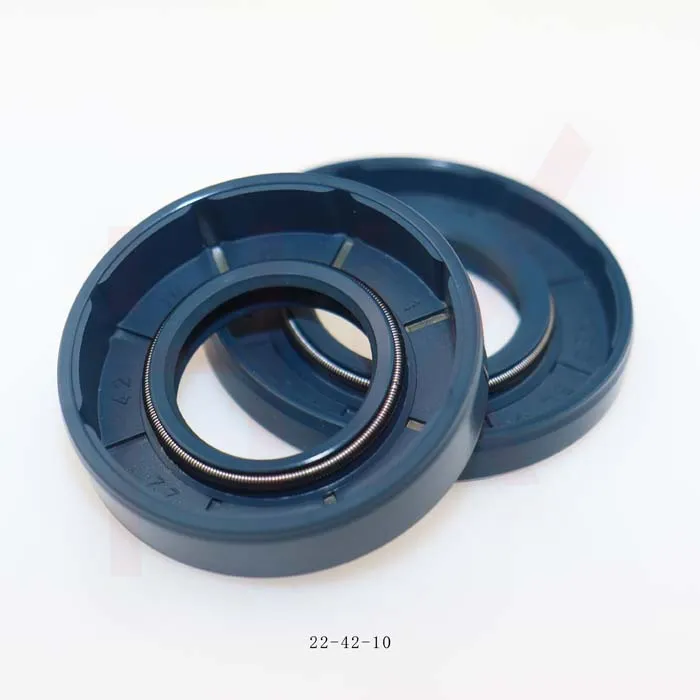نويابىر . 06, 2024 21:58 Back to list
Understanding the Importance of Cylinder Oil Seals in Engine Performance
Understanding Cylinder Oil Seals Essential Components of Engine Efficiency
Cylinder oil seals, often referred to simply as oil seals, play a critical role in the functionality and efficiency of various mechanical systems, particularly in internal combustion engines. These seals function as barriers, preventing the escape of engine oil and the leakage of gases, thus contributing significantly to engine performance and longevity.
What is a Cylinder Oil Seal?
A cylinder oil seal is typically a circular sealing component made from rubber, plastic, or a composite material. It is designed to fit snugly around a rotating shaft, creating a tight seal that keeps lubricants in place and contaminants out. The design of an oil seal allows it to withstand high pressures, abrasives, and temperature fluctuations, making it an indispensable part of an engine assembly.
The Working Mechanism of Oil Seals
When an engine operates, cylinder oil seals endure various forces as the shaft rotates. The oil seal utilizes a lip that faces the oil, forming a meniscus that helps to hold lubricant in place while minimizing the escape of oil due to centrifugal forces. The effectiveness of the seal is determined by factors such as material quality, design precision, and installation accuracy.
Importance of Cylinder Oil Seals
1. Preventing Oil Leakage One of the primary functions of an oil seal is to prevent oil from leaking out of the engine. Oil loss can lead to decreased lubrication, resulting in increased friction among engine components. This friction not only affects performance but can also lead to engine wear or failure.
2. Maintaining Pressure Oil seals help maintain the required pressure within the engine. A proper seal contributes to the optimum combustion process by ensuring that blow-by gases do not escape. Maintaining pressure is crucial for engine efficiency and performance.
3. Extending Engine Life By preventing leaks and maintaining pressure, oil seals contribute to a longer operational life for engines. An engine that is properly sealed will require less frequent repairs and maintenance, saving both time and costs for vehicle owners.
4. Performance Optimization High-quality cylinder oil seals ensure that the engine operates at its best. By minimizing leaks and ensuring the right amount of lubrication, these seals help attain optimal performance, fuel efficiency, and emissions control.
cylinder oil seal

Types of Cylinder Oil Seals
Various types of cylinder oil seals exist, each designed for specific applications. Common types include
1. Single-Lip Seals These are the most basic type of oil seal, providing a single point of contact to prevent leaks. They are typically used in low-pressure applications.
2. Double-Lip Seals These seals have two lips, providing an additional layer of protection against contaminants. They are often used in higher-pressure environments where increased sealing is necessary.
3. Spring-Loaded Seals Designed with a spring to enhance the sealing force against the shaft, spring-loaded seals are effective at maintaining a tight fit even under varying operating conditions.
Common Issues and Maintenance Tips
While cylinder oil seals are durable, they can wear out over time due to heat, pressure, and exposure to contaminants. Common issues include cracking, hardening, or losing elasticity, which can lead to leaks. Regular checks are recommended, and if any signs of wear are observed, immediate replacement is advisable.
To extend the life of oil seals, ensure proper installation, use high-quality lubricants, and maintain engine temperature. Additionally, regular maintenance can help identify potential issues before they lead to significant problems.
Conclusion
Cylinder oil seals are small yet vital components in engine systems that contribute immensely to overall performance and efficiency. Understanding their functionality and importance can help vehicle owners appreciate the significance of these seals and encourage proactive maintenance practices. By ensuring the integrity of oil seals, one can keep the engine running smoothly and efficiently for years to come.
-
The Trans-formative Journey of Wheel Hub Oil Seals
NewsJun.06,2025
-
Graphene-Enhanced Oil Seals: Revolutionizing High-Pressure Oil Sealing
NewsJun.06,2025
-
Future of Hydraulic Sealing: Advanced Intelligent TCN Oil Seals
NewsJun.06,2025
-
Don’t Let a Broken TCV Oil Seal Ruin Your Day
NewsJun.06,2025
-
Bio-Inspired Dust Seals for Better Sealing Performance
NewsJun.06,2025
-
Biodegradable and Sustainable Hydraulic Seal Materials
NewsJun.06,2025
-
Top Oil Seal Solutions for Your Industrial Needs
NewsMay.22,2025
Products categories
















